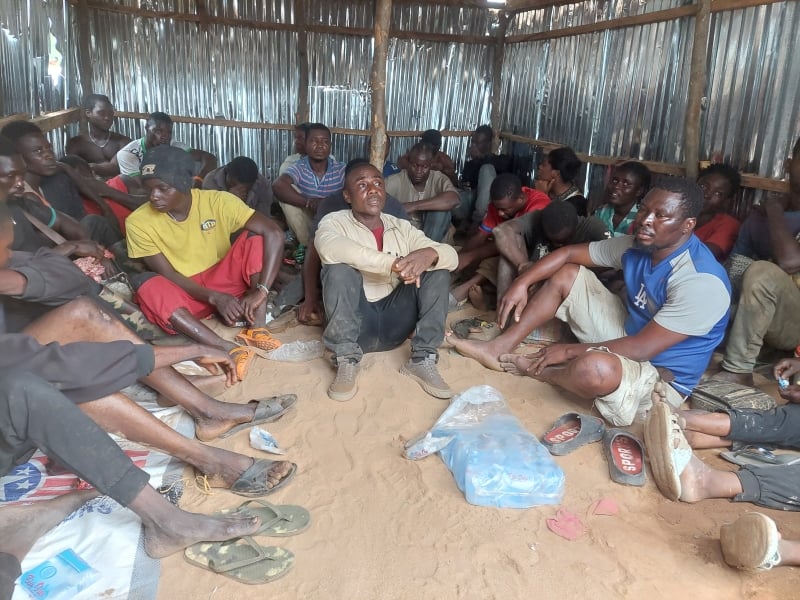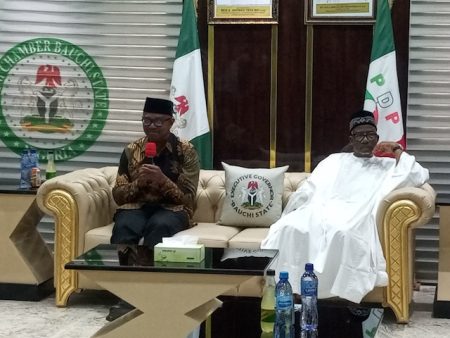The fight against illegal mining, commonly referred to as “galamsey” in Ghana, has intensified with a recent operation led by a joint military-police task force in the Bono Region. This operation, targeting an emerging illegal mining hub known as ‘Operator’ in the Banda District, resulted in the arrest of 31 suspected illegal miners and the seizure of significant mining equipment and resources. The task force, under the command of Mr. Joseph Addae Akwaboa, dismantled and burned 150 makeshift structures used by the miners, effectively displacing over 1,000 residents, including women and children. The operation underscores the government’s commitment to curbing the detrimental environmental and social impacts of illegal mining.
The seizure of 11 excavators, a crucial piece of machinery in galamsey operations, represents a significant blow to the illegal miners. Excavators are used to dig deep into the earth, exposing mineral deposits and drastically altering the landscape. Their removal from ‘Operator’ limits the miners’ ability to continue their destructive activities. In addition to the excavators, about 15 motorbikes and 10 tricycles, commonly used for transporting minerals and supplies, were also confiscated. The task force also seized several gallons of fuel, essential for powering the excavators and other machinery, and destroyed eight Chanfan machines, typically used for processing the mined ore. These seizures further disrupt the illegal mining operations and financially impact those involved.
The operation’s broader impact, however, extends beyond the immediate disruption of illegal mining activities. The displacement of over 1,000 residents, including families with women and children, raises concerns about their well-being and future livelihoods. While the operation aimed to curb illegal activities, it also inadvertently disrupted the lives of those dependent on the informal economy that had sprung up around the mining site. This displacement highlights the complex socio-economic dimensions of the galamsey issue, demanding not just enforcement actions but also sustainable alternative livelihood opportunities for affected communities.
Mr. Akwaboa, speaking to the media after the operation, affirmed the government’s commitment to intensifying anti-galamsey efforts and prosecuting all those apprehended. He stressed the importance of reclaiming the degraded land at ‘Operator’ and indicated that a report would be submitted to the Ministry of Lands and Natural Resources to seek guidance on the best approach for rehabilitation. This statement highlights the long-term environmental consequences of galamsey, which often leaves behind scarred landscapes, polluted waterways, and destroyed ecosystems. The commitment to land reclamation signifies a move towards mitigating the environmental damage and restoring affected areas.
The human side of the story is captured in the account of Madam Abiba, a mother of four and owner of the most popular drinking spot in ‘Operator.’ Having operated her business in the area for five years, she expresses concern about the impact of the task force operation on her livelihood. Her story sheds light on the economic dependency of some community members on the illegal mining activities, even indirectly. Madam Abiba’s plea for the government to create alternative employment opportunities resonates with the wider concern about providing sustainable and legitimate livelihoods for those affected by the crackdown on galamsey. Her statement that many youths in the area engage in galamsey due to a lack of decent jobs highlights the underlying socio-economic drivers fueling this illegal activity.
The operation at ‘Operator’ represents a significant stride in the ongoing battle against galamsey in Ghana. It demonstrates the commitment of the joint military-police task force to enforcing the law and dismantling illegal mining operations. However, the operation also underscores the complex social and economic ramifications of this illicit activity. The displacement of residents and the plea for alternative livelihoods underline the need for a multifaceted approach that integrates enforcement with sustainable development initiatives. Addressing the root causes of galamsey, such as unemployment and poverty, is crucial for long-term success in combating this destructive practice and ensuring a better future for affected communities. The government’s stated intention to reclaim the degraded land signals a positive move towards environmental restoration, while the prosecution of arrested suspects will hopefully serve as a deterrent to others involved in galamsey.














